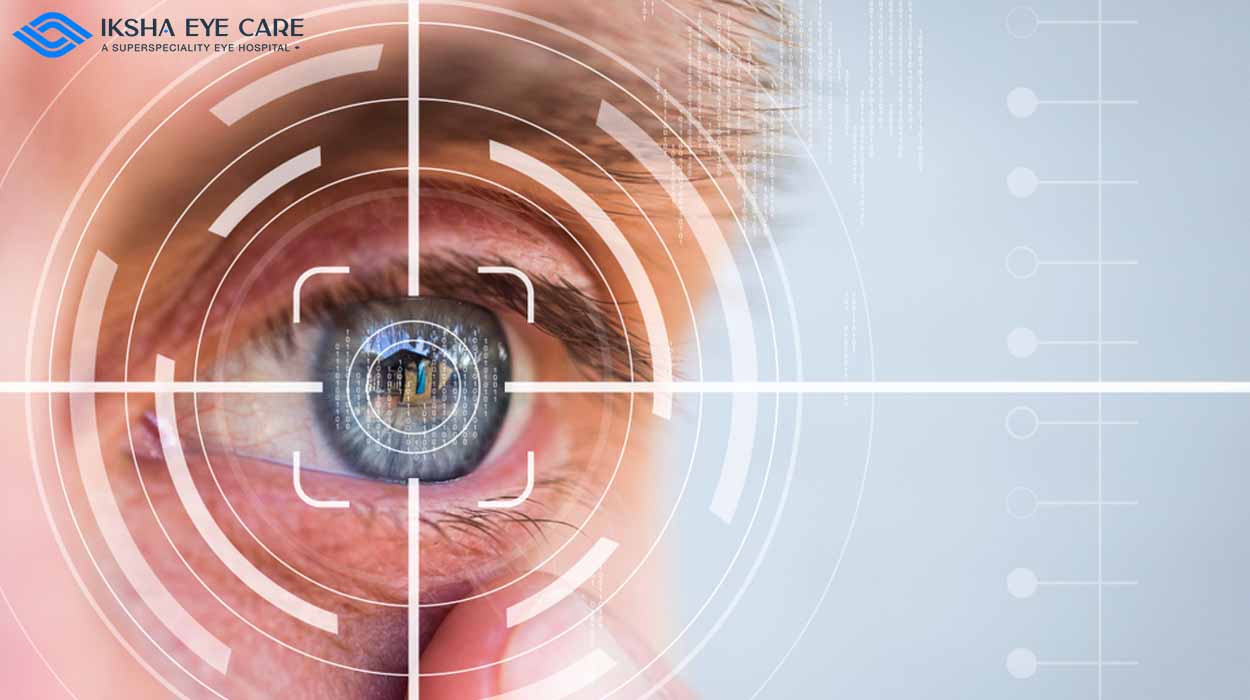Comprehending the Various Eye Issues Treated by Specialized Eye Treatment Professionals
In the realm of eye care, specialized specialists play a crucial function in detecting and treating a large array of eye problems. As we embark on this expedition of the numerous eye problems attended to by specialized eye care specialists, it becomes obvious that the intricate web of eye wellness holds a myriad of fascinating insights waiting to be discovered.
Usual Refractive Mistakes
Refractive mistakes prevail visual conditions triggered by a blemish in the eye's capability to properly concentrate light, causing blurred vision. The most prevalent sorts of refractive errors consist of nearsightedness (nearsightedness), hyperopia (farsightedness), astigmatism, and presbyopia. Nearsightedness occurs when the eyeball is too lengthy or the cornea is as well rounded, triggering far-off items to appear blurry. Hyperopia, on the other hand, takes place when the eyeball is also brief or the cornea is also level, leading to nearby objects being out of emphasis. Astigmatism is identified by an irregularly designed cornea, causing distorted or blurred vision at all distances. Presbyopia is an age-related condition where the lens loses its flexibility, making it challenging to concentrate on close items.
These refractive mistakes can be corrected with numerous techniques, including eyeglasses, get in touch with lenses, or refractive surgical treatment. Eye treatment experts play an essential function in detecting and handling refractive errors to help people attain more clear vision and boost their lifestyle.
Age-Related Eye Conditions
One of the most prevalent age-related eye problems is age-related macular deterioration (AMD), a disease that triggers central vision loss and can make tasks like reading and driving challenging. Cataracts, an additional typical condition among older individuals, cause clouding of the eye's natural lens, leading to blurred vision. Routine eye examinations with specialized eye treatment experts are critical for very early discovery and management of these age-related eye conditions to preserve vision and keep eye health and wellness as people expand older.
Vision-Threatening Conditions
Vision-threatening conditions incorporate a variety of significant ocular problems that have the possible to considerably impact an individual's sight and total visual function. These conditions pose a threat of long-term vision loss if not without delay identified and treated by specialized eye treatment specialists. Some common vision-threatening conditions consist of glaucoma, diabetic retinopathy, age-related macular deterioration (AMD), and retinal detachment.
Glaucoma is a group of eye problems that damage the optic nerve, frequently due to high intraocular stress, causing field of vision loss and possible blindness if left neglected. Diabetic retinopathy is a difficulty of diabetes that influences blood vessels in the retina, causing vision problems or loss of sight. AMD is a progressive problem affecting the macula, bring about central vision loss. Retinal detachment occurs when the retina separates from its underlying cells, resulting in unexpected vision loss that calls for immediate medical interest (refractive surgeries in al).
Early detection, regular eye examinations, and timely intervention are critical in handling vision-threatening illness to protect vision and preserve top quality of life. Specialized eye treatment specialists play a vital role in diagnosing, treating, and managing these conditions to prevent irreversible vision loss.

Corneal Conditions
Corneal conditions incorporate a spectrum of problems that affect the clear front component of the eye, known as the cornea. These problems can lead to pain, visual disturbances, and in extreme situations, vision loss. One usual corneal problem is keratoconus, where the cornea thins and protrudes external right into a cone shape, triggering astigmatism and obscured vision. Corneal dystrophies, such as Fuchs' dystrophy, lead to gradual vision refractive surgeries in al loss as a result of unusual deposits in the cornea. Corneal abrasions, typically brought on by injury or international things, can lead to discomfort, soreness, and sensitivity to light. Furthermore, infections like keratitis can irritate the cornea, potentially causing scarring and vision impairment if not immediately dealt with. Therapy for corneal disorders varies depending on the particular condition yet may include medicines, get in touch with lenses, or in serious situations, corneal transplants. Normal eye tests are essential for early detection and administration of corneal conditions to protect vision and eye health and wellness.
Neurological Eye Problems
Neurological eye conditions entail disorders that influence the connection in between the eyes and the brain, affecting visual handling and general eye feature. These conditions can show up in numerous ways, affecting vision, eye movements, and also the coordination between the eyes. One usual neurological eye problem is optic neuritis, defined by swelling of the optic nerve resulting in vision loss, shade desaturation, and pain with eye activity.
One more substantial condition is nystagmus, where the eyes make repeated, unchecked movements, impacting aesthetic skill and depth understanding. Furthermore, problems like amblyopia, often referred to as "lazy eye," arise from uncommon visual development in very early childhood, bring about reduced vision in one eye.
Neurological eye problems call for customized treatment from professionals like neuro-ophthalmologists that have knowledge in both neurology and ophthalmology. Medical diagnosis usually entails a comprehensive eye examination, imaging researches, and cooperation with specialists to address the underlying neurological issues affecting the aesthetic system. Therapy techniques can include medication, vision treatment, or in serious cases, medical treatments to handle these complex problems properly.

Final Thought
Finally, specialized eye treatment professionals deal with a large variety of eye conditions, including common refractive errors, age-related eye problems, vision-threatening illness, corneal problems, and neurological eye problems - refractive surgeries in al. By comprehending these numerous conditions and seeking ideal treatment from eye treatment professionals, individuals can preserve optimal eye health and wellness and vision. It is vital to prioritize regular eye evaluations and adhere to recommended treatment plans to protect and shield one's vision for the future